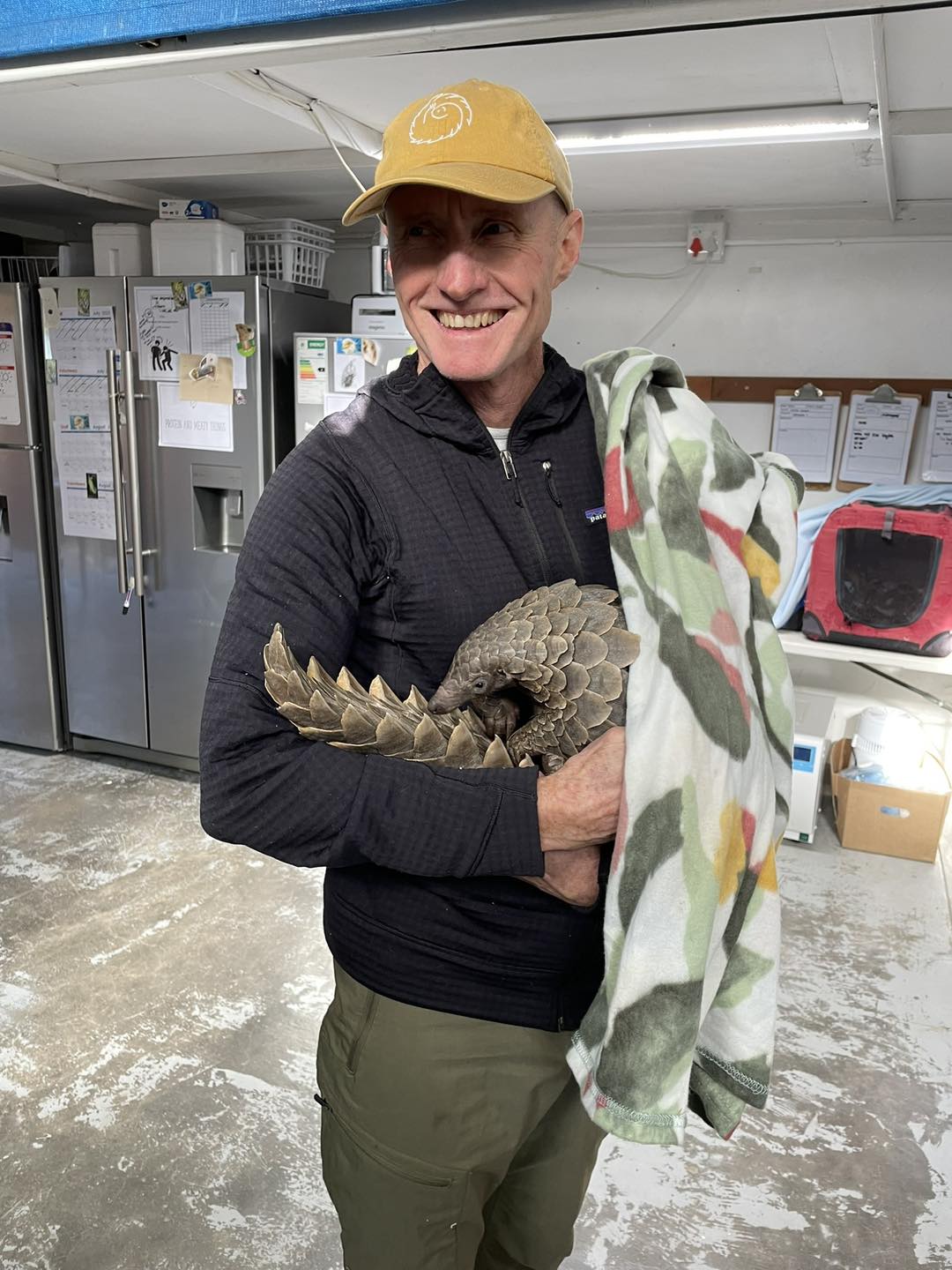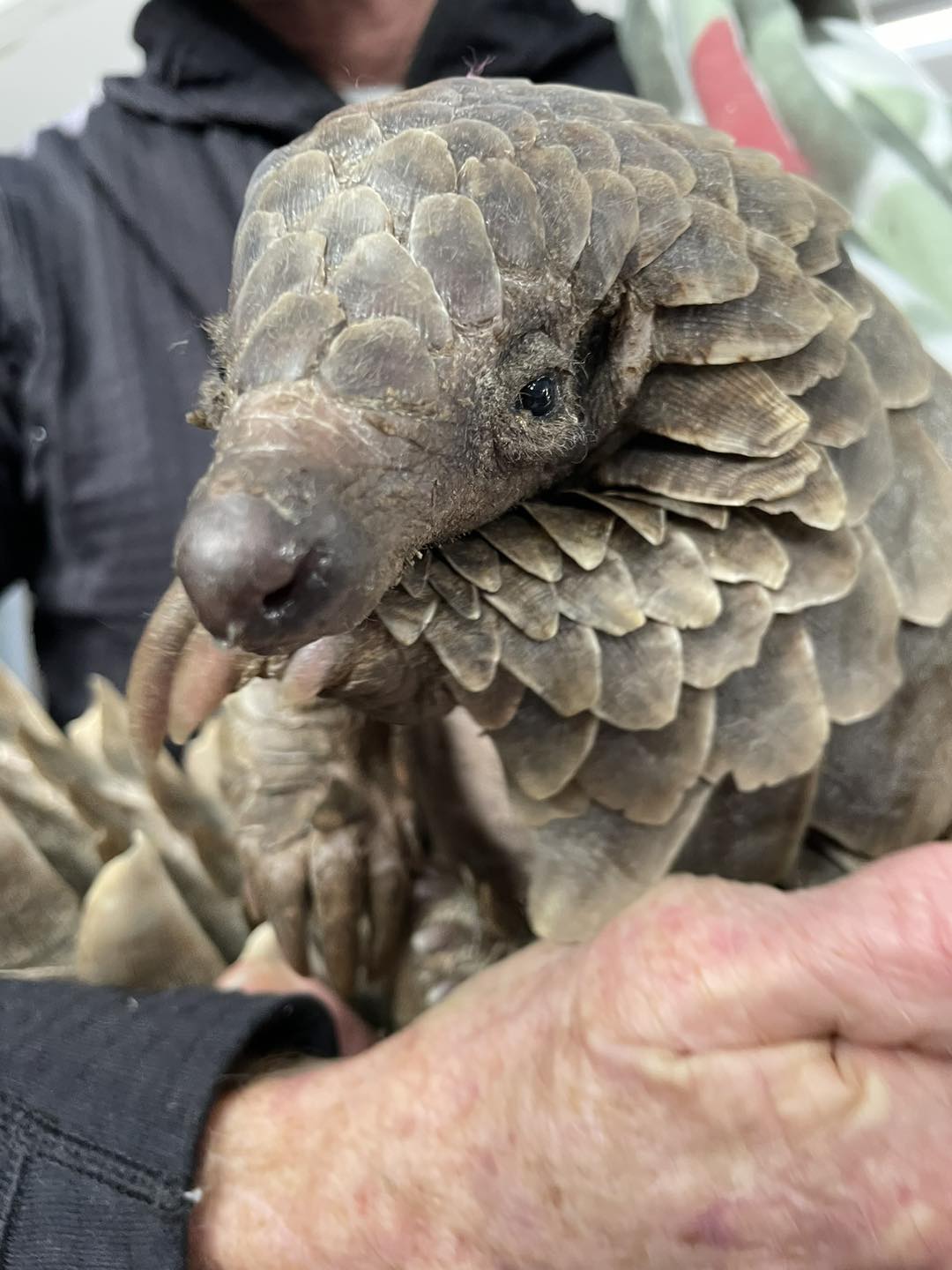When a traumatised pangolin arrived at Johannesburg Wildlife Veterinary Hospital, she brought sass, scars and a spark of hope with her.
Undisclosed Location (15 July 2025) – When Shumi arrived at Johannesburg Wildlife Veterinary Hospital last week, she wasn’t just injured, she was broken. Trafficked, terrified, and teetering on the edge of survival, the young pangolin had been rescued in time… but just barely.
Her condition was heartbreaking: dehydrated, emaciated, and covered in foul-smelling, infected wounds hidden under the very scales meant to protect her. But even in her weakest state, there was fire in her. The team at Johannesburg Wildlife Veterinary Hospital, a place that’s become a lifeline for South Africa’s most vulnerable wild animals, saw it immediately.
“She made it very clear from the start that she wasn’t impressed by any of us,” they shared in a Facebook post. “Her feisty attitude was impossible to ignore!”
Shumi is the 202nd pangolin to be admitted to their care, a number that reflects both the severity of illegal wildlife trafficking and the unwavering commitment of the people who work to stop it. These aren’t just stats on a chart. Every pangolin has a story and every rescue is a fight against extinction.
And the Johannesburg Wildlife Vet team doesn’t fight alone.

As soon as Shumi was stabilised and her wounds began healing, it became clear she had a very picky palate… she only liked ants found at the base of trees. Which, inconveniently, were in short supply at the hospital’s pangolin foraging site. Since pangolins won’t eat from bowls in captivity, foraging isn’t optional; it’s essential. Luckily, the heroes from Provet Animal Hospital and Umoya Khulula Wildlife Centre stepped in to assist.
With the right ants (and the right heart), they’ve stepped in to help Shumi continue her rehabilitation in an environment better suited to her tastes and temperament.
“True conservation doesn’t happen in isolation,” the team explained. “It’s thanks to our trusted pangolin partners that Shumi has a real chance at healing and freedom.”
It’s easy to feel overwhelmed by the scale of wildlife crime. But stories like Shumi’s remind us that there is hope and it lives in the hands of passionate vets, conservationists, and caregivers who choose, every day, to fight for those who can’t fight for themselves.
And while Shumi may have arrived with scars and suspicion, she’s now walking a new path… one lined with ants, kindness and a slow but steady return to trust.


